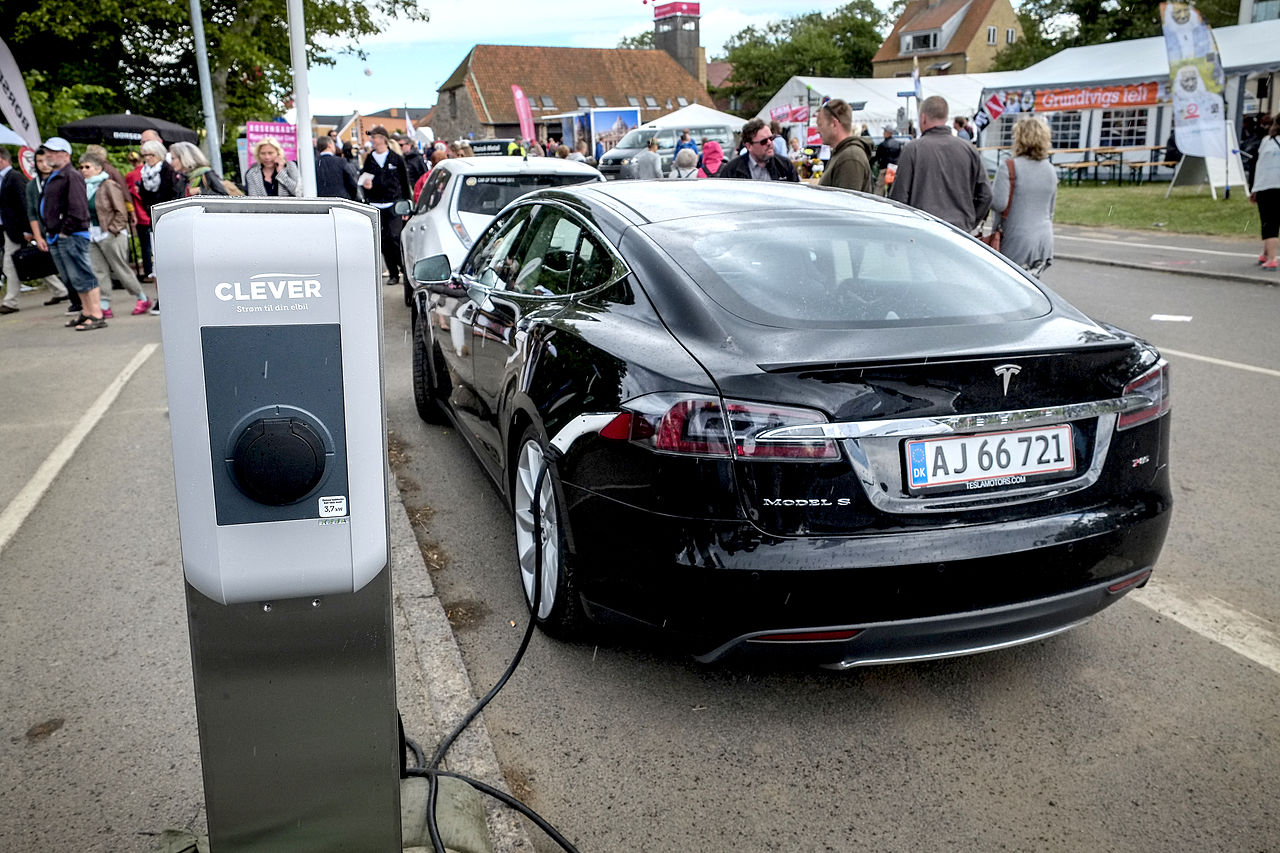While many countries around the globe have been voicing concern over carbon emissions and climate change, some are rushing to get behind the wheel of eco-friendly electric cars.
More than two million electric cars were recorded to be in use and 753,000 sold worldwide in 2016, according to a report issued by the International Energy Agency. China was by far the largest electric car market in 2016, accounting for more than 40% of the worldwide electric car market share, followed by Europe, where electric vehicle sales hit 215,000. In the United States, sales rebounded to 160,000 units after a slight drop one year earlier.
Caspian region countries are no exception to what is a growing and global trend to "go green". While numbers remain low, awareness about and attractiveness of electric-powered motor vehicles are gaining traction. In Kazakhstan, Central Asia’s largest country with a population of nearly 18 million, 1,000 electric cars are already on the road.
Unlike cars powered by an internal combustion engine, ‘green’ cars are using electrical energy stored in rechargeable batteries. But they don’t come cheap.
At an average cost of about $36,000, electric cars are still a luxury item. In order to overcome the financial hurdle and promote sales, some governments provide direct subsidies or one-time cash payments to customers who are interested in swapping their gas- or diesel-guzzling motor vehicle for one powered by a rechargeable battery.
Residents of California, for example, benefit from a $1,500 discount on the purchase of an electric car in addition to a tax subsidy. Almost 40 percent of all electric cars and plug-hybrids sold in the US are registered in the “Golden State.” As a result of California’s Clean Vehicle Rebate Program, more than 100,000 cars have been put on the road since 2010.
Oleg Alferov, Chairman of the Board at KazAvtoProm, believes that as long as there are no government subsidies provided in Kazakhstan, the potential of electric vehicles will not be reached.
“The cost of electric cars is very high, even if we are talking about electric vehicles of Chinese brands,” Alferov said. Chinese mini-electric cars go for as little as $2,500 through the e-commerce company Alibaba.com, for example.
As an incentive, Astana has permitted the import of electric vehicles without levying any duties or having to pay transportation taxes, for a one-year period that began in September 2016.
Moscow had a similar scheme, and last August the Russian carmaker AvtoVAZ unveiled an electronic vehicle prototype, called Lada Vesta. ElLada was Russia’s first electric car, prototyped in 2012 and based on the popular Lada Kalina.
Throughout the first half of 2017, 19 new electric cars were registered in Kazakhstan, compared to just nine sold within the first six months of 2016. According to data provided by KazAvtoProm, those sold included vehicles produced by Tesla, the American brand famous for electric cars, Nissan (Japan), KIA (South Korea), JAC (China), Renault (France), and AvtoVAZ (Russia).
Electric cars have not been popular among Russian drivers due to a lack of Infrastructure, harsh climatic conditions, high sticker price, and limited mileage on a single charge of the battery are all reasons cited as to why electric cars are not taking off anytime soon in the Caspian region’s largest and most populated country.
But Vladimir Pirozhkov, president of Astra Rossa Industrial Design and Innovation Center, believes Russians need electric cars.
"It's hard to breathe in Moscow, and an electric car is environmentally-friendly," said Pirozhkov. "For large cities it's a way to solve environmental problems."
Azerbaijan, which expects electric cars to come online by 2020, is giving a push towards sales through the government’s “Strategic Roadmap for the Development of Public Services (electric and thermal energy, water and gas) in Azerbaijan.”
Nariman Agayev, the head of the Baku-based Center for Sustainable Development Studies, believes that inaccessible prices are one of the reasons why electric cars have not been popularized in Azerbaijan.
“There are only a couple of companies that are engaged in the sale of electric vehicles,” Agayev told Echo newspaper. “There are very high prices and, accordingly, a lack of interest among the population.”
“Another reason is that we have quite cheap fuel,” Agayev said, explaining that cheap gasoline further reduces incentives for Azerbaijanis to switch over to costly electric vehicles.
But some researchers say electric cars will rival gasoline-fueled vehicles as early as 2022. Experts from the UK’s Imperial College say installed capacity shows electric cars are actually cheaper, kilometer per kilometer.
If electric transport becomes a mainstream means of transportation, the volume of carbon dioxide, a gas that remains in the atmosphere longer than the other major heat-trapping gas emitted as a result of human activities, can be significantly reduced. An electric car produces 66 grams of carbon dioxide per one kilometer, whereas a gas-powered car produces 124 grams, according to the European Eurelectric association.
As a result, cities will not only be cleaner but quieter: Electric cars are almost noiseless, making them the safer alternative in crowded metropolises and congested crosswalks.







 Armenian sappers commenced on Monday mine-clearance operations in the territories adjacent to the Saint Mary Church in village of Voskepar (Armenia...
Armenian sappers commenced on Monday mine-clearance operations in the territories adjacent to the Saint Mary Church in village of Voskepar (Armenia...
 Iran and Pakistan have signed eight cooperation documents in various fields, and agreed to strengthen ties to fight terrorism in the region.
Iran and Pakistan have signed eight cooperation documents in various fields, and agreed to strengthen ties to fight terrorism in the region.
 President Aliyev emphasized the critical role of the North-South Transport Corridor in fostering transport cooperation between Azerbaijan and Russi...
President Aliyev emphasized the critical role of the North-South Transport Corridor in fostering transport cooperation between Azerbaijan and Russi...



